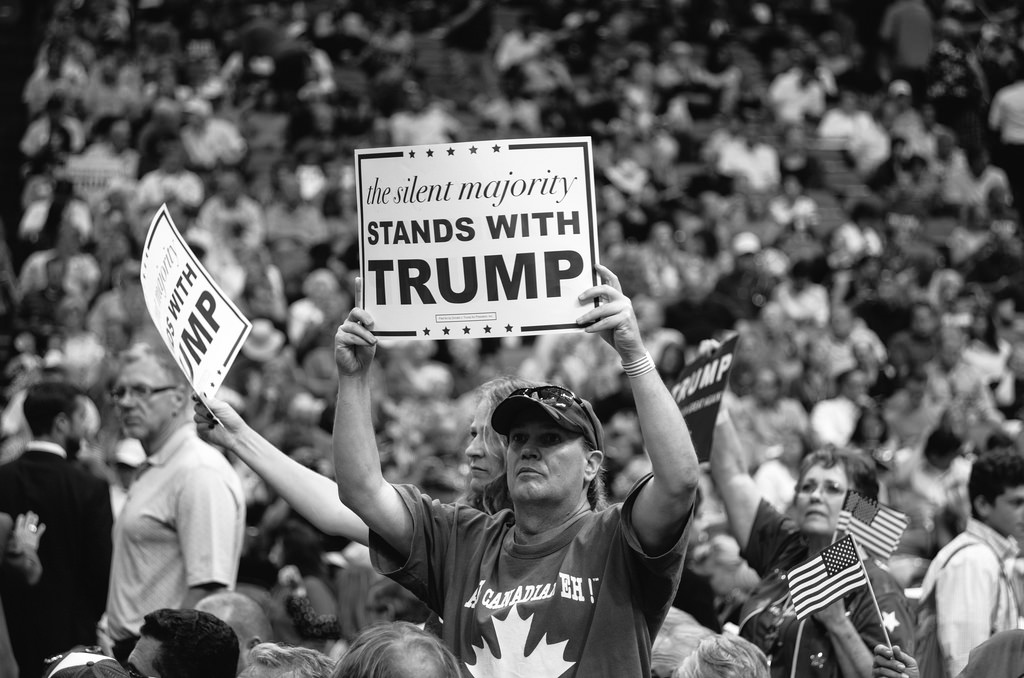I wake up Wednesday morning, and the world is still here. My room looks the same, the trees outside my window still dance in the morning breeze, and my steaming cup of black coffee tastes as good as ever.
Americans head off to work, some with a smile, others with latent shock. Some listen to the TV or radio, others pick up a newspaper. They all find the same report. Trump has defeated Clinton and shattered the American political establishment. Election commentators attempt to rationalize and explain away the results of the previous night.
All the passion and vitriol on both sides of the campaign is condensed down to a few lines of text. Clinton supporters weep for the end of progress, and Trump supporters praise him for taking back their country. Independents and third party supporters feel more marginalized by the two-party system than ever. Wall Street and foreign governments panic at the crumbling of the status quo.
Every mind spins with the possible consequences of Trump’s victory. And yet no one does anything. We all go about our Wednesday routines as if nothing really happened. Both the victors and the vanquished accept the narrative that the fight is over—that democracy is over—or at least in moratorium for another four years.
We forget that participation is not a quadrennial activity. We forget that the power of the people comes not from their election of corrupt politicians but from their daily action: their ability to shape their community for the better.
We the people do not need an overgrown Oompa Loompa sitting in the oval office to tell us that our country could be great. Americans know that the country could be better. The beauty of democracy is that we get to decide what great means together.
So many Americans are frustrated. Globalization and the rapid advancement of technology have left them behind. Neo-liberalism has left them behind. They are angry, and reasonably so.
Trump is an opportunist and nothing more. He perverts the cause of labor by making it about man versus woman, and white versus everyone else. His ascendance to the oval office will change nothing for the better.
But the concerns of his supporters remain valid. Their disdain for the political establishment is not something that can easily be brushed aside. The growth of American populism is not exclusively the dominion of Trump.
From the start this election, it shaped itself as one of establishment versus anti-establishment. In the primary, Sanders tapped this vein on the left, and Trump on the right. However, the Democratic National Committee proved more effective than the Republican National Committee at snuffing out opposition. And, in the general election, the anti-establishment prevailed.
But the victory is mostly symbolic. Trump will do little to ease the burden of labor. He will not deliver the country to greatness, and if his supporters sit idly by, he will betray them. If Trump’s opponents simply rely on the Democratic congressional minority to obstruct him, they too will be betrayed.
This election has blurred the lines between Democrat and Republican, and yet the nation is more polarized than ever. The two major parties no longer represent the interests of the American people. They sit in Washington shouting incommensurable arguments at one another and allowing private interests to dictate policy.
Americans need to wake up and realize that the quality of the republic depends on their participation. That we should not pass the buck to career politicians. That we need not rely on ideology and arbitrary colors to know what is right. That each and every one of us has a responsibility to debate the great and small questions of our day.
The true danger of Trump’s presidency is our inaction—our faith in a system that has so repeatedly failed us. If the American nation is to be of, by, and for the people, then we need to reevaluate what it means to be a citizen. Disagreement is healthy for a free society, but we must share a commitment to active participation and discourse.
The choice ours, both individually and collectively. Presidential elections only come once every four years, but opportunities to participate come daily.
Do we simply weather the storm? Do we continue to be divided along racial, gender, cultural and economic lines?
Or do we instead gather in the streets and tell our would-be dictator what we demand from our republic? The choice is ours.

